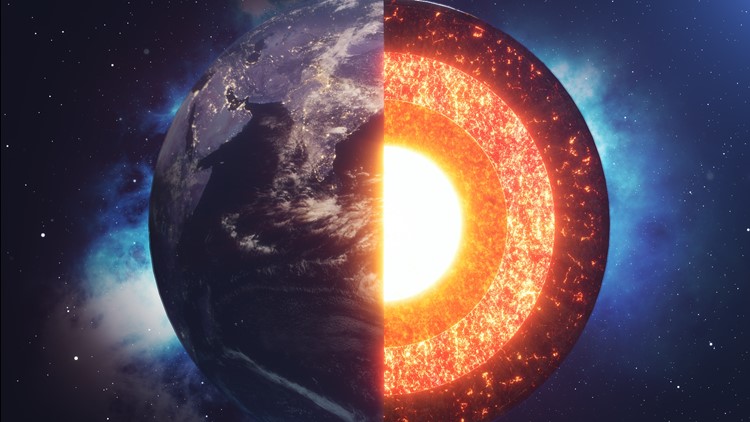ZÜRICH, Switzerland — Since the Earth formed some 4.5 billion years ago, scientists say its evolution has been "the story of its cooling."
Over the millions of years since the planet we call home was overrun by a deep ocean of magma, the Earth's surface has been cooling — but is it happening faster than we previously thought?
Researchers with ETH Zurich seem to think so.
A study the group recently published in the journal Earth and Planetary Science Letters says research into how well a mineral found between the Earth's core and mantle conducts heat could have larger implications for the planet.
"[The result] leads them to suspect that the Earth’s heat may dissipate sooner than previously thought," a press release reads.
According to researchers, the Earth's boundary layer is mainly formed by a mineral called bridgmanite which conducts heat. But how conductive is it?
Well, according to ETH Professor Motohiko Murakami and researchers from the Carnegie Institution for Science, it's about "1.5 times higher than assumed."
The more rapid conductivity is what leads researchers to believe the heat flow from the Earth's core to the mantel must also be higher than previously thought.
"Greater heat flow, in turn, increases mantle convection and accelerates the cooling of the Earth. This may cause plate tectonics, which is kept going by the convective motions of the mantle, to decelerate faster than researchers were expecting based on previous heat conduction values," a press release reads.
But that's not all. The study also shows that the rapid cooling of the mantel would change "the stable mineral phases" at the core-mantle boundary.
That means when bridgmanite cools it turns into another mineral researchers determined to be more heat conductive — leading to an even more accelerated cooling of the mantle.
“Our results could give us a new perspective on the evolution of the Earth’s dynamics. They suggest that Earth, like the other rocky planets Mercury and Mars, is cooling and becoming inactive much faster than expected,” Murakami explains.
Fear not, researchers say they still have more work to do to "pin down" the timeline for the Earth's projected cooling. At this time there's no definitive answer.



